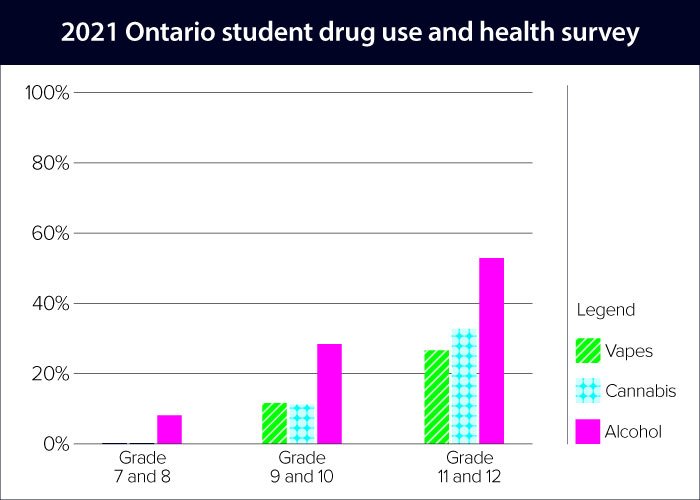My brain my choice caregiver resource

As a caregiver, you play a key role in shaping your child’s attitudes regarding substances. What you say and how you say it will have an impact on their thinking, decision-making, risk taking and choices. Talking with your child about substances occurs over several conversations; it is not a one-time event.
What you can do:

Know who your child is spending time with, what they are doing, and where they are.
- Get to know your child’s friends and their parents.
- Talk to your child about what qualities to look for in a friend (e.g., honesty, kindness).
- Educate your child on the responsible use of social media.

Talk early and often with your child. Ongoing communication allows them to share their interests and areas of concern with you.
- Encourage your child to talk about their thoughts on substances.
- Share your concerns about substance use and be honest if you do not know all the information.
- Focus on alcohol, cannabis, and vaping - the substances most often tried by youth. Let them know most teens are not using substances.

Set clear expectations to create an environment where rules are respected.
- Set rules around substance use before a child is exposed to a situation potentially involving substances.
- Work together in the development of rules and consequences. Base rules and consequences on the age and maturity of your child.
- Seek help if your child consistently breaks the rules.

Be a positive role model – your child is watching you and is influenced by your behaviours.
- Model healthy stress management strategies such as going for a walk.
- Think about your own opinions on the use of substances and what messages you are sending your child.
- Model having a good time without using substances.

Support healthy relationships which can help prevent or delay substance use.
-
Encourage your child to discuss problems and concerns with you or other trusted adults.
-
Research “unknowns” or misconceptions about substances together.
- Celebrate good choices and be genuine in your praise.

Getting the conversation started
- Practice the conversation with your partner or a trusted friend.
- Plan to stay calm. Be kind, simple, and direct in your statements to your child.
- Ask open-ended questions e.g., “Tell me more about …”, “Where do you get your information?”, “What do you know about alcohol/cannabis/vaping?”

Chart description |
Grade 7 and 8
Grade 9 and 10
Grade 11 and 12
Credit: Boak A, Elton-Marshall T, Hamilton HA. The well-being of Ontario students: findings from the 2021 Ontario student drug use and health survey. Toronto, ON: Centre for Addiction and Mental Health; 2022. Available from: https://www.camh.ca/-/media/files/pdf---osduhs/2021-osduhs-report-pdf.pdf |
Resources:
-
Drug Free Kids Canada: A variety of resources such as parenting tips and the Parent Support Hub which offers online and phone support.
-
Centre for Addiction and Mental Health (CAMH): Cannabis resource for parents, guardians and caregivers provides information about cannabis, cannabis legalization, risks, signs of a problem, how to help your child and where to get more information and support.
-
Health Canada: Talking with your teen about vaping, a tip sheet for parents provides information about vaping, risks of nicotine and how to help your child.
-
KFL&A Public Health: Parenting and health information.
-
Maltby Centre: Crisis Line and counselling Monday to Friday from 8:30 a.m. to 4:30 p.m.
-
Kids Help Phone: 24-hour support, and their website has numerous resources for youth to explore, including information on mental health and substance use.










